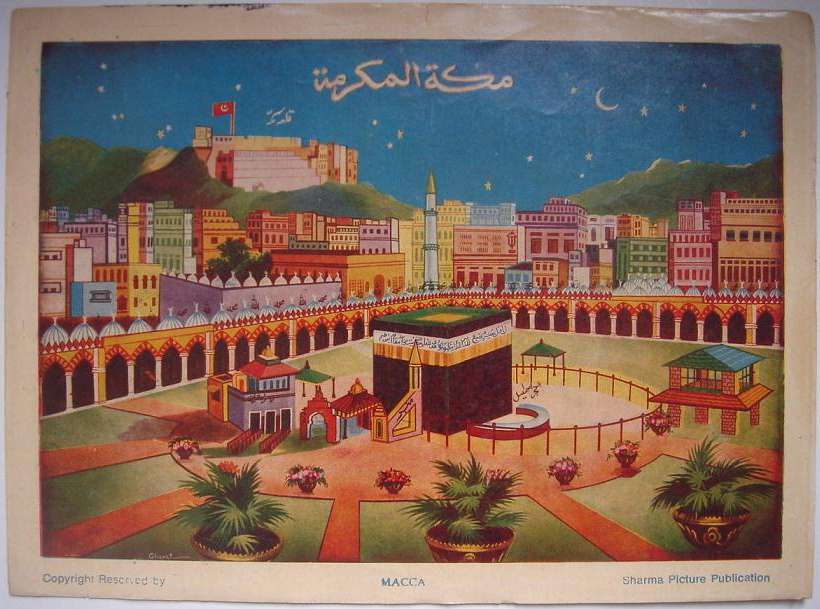FWP:
SETS == CATCH-22
ISLAMIC: {10,2}
As Hali points out, to express an earnest desire to go to Mecca for the Haj ought to be a sign of piety and devotion. But at the same time, to claim that the desire is so ardent that one would sacrifice the merit of the journey in order to make the journey, defeats the purpose. It sets up a kind of 'catch-22' situation-- the speaker wants to do something that would bring him religious merit, so badly that in order to get to do it he'll give up the religious merit that it would bring him.
The only possible conclusion is that Ghalib is being flippant,
or 'mischievous'. The only way out of the 'catch-22' is to assume that Ghalib
doesn't take the whole trip seriously at all: either he is just being witty
and doesn't really care about going, or else perhaps he is hinting
that he would enjoy going, but rather for the pleasures of travel and tourism
than for the official religious purpose of the pilgrimage.

Hali:
From this verse Mirza's complete mischievousness of temperment is manifest.... On the one hand, so much eagerness for the trip to do the Haj; and on the other hand, such lack of respect for the merit of the Haj!
==Urdu text: Yadgar-e Ghalib, pp. 165-66